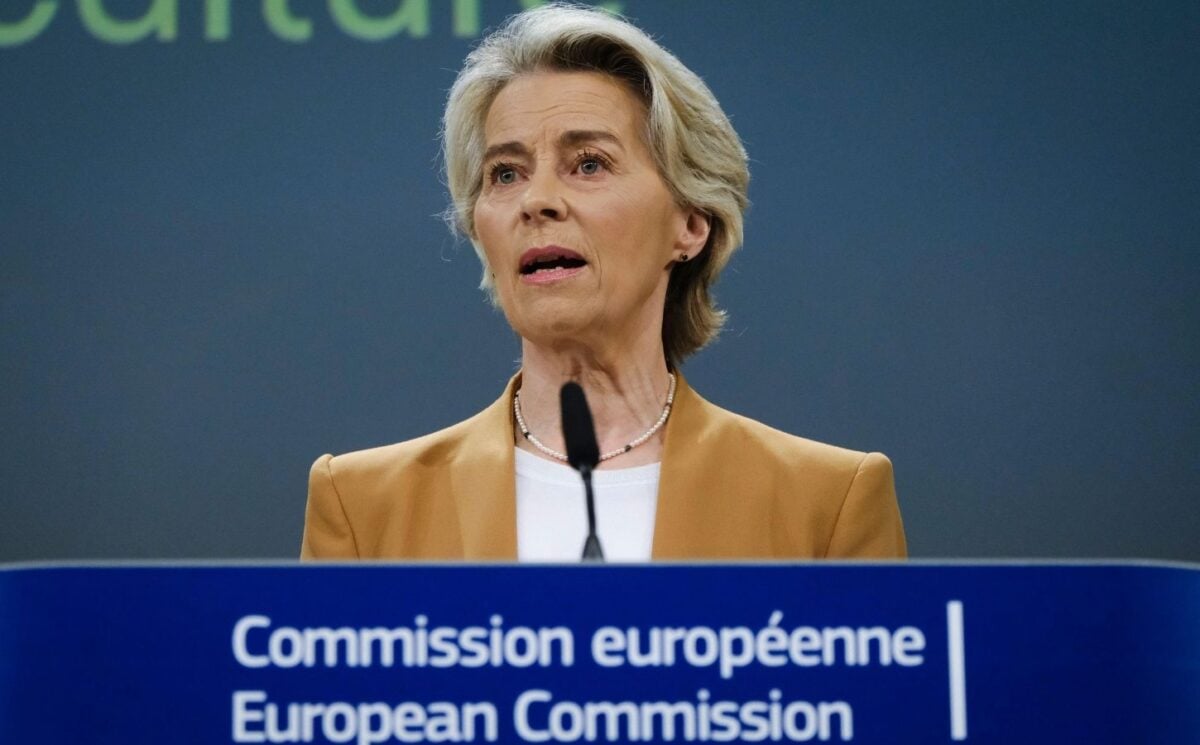A new report funded by the European Commission has called for greater reliance on plant-based proteins in the food system.
The report comes from a high level forum called Strategic Dialogue on the Future of EU Agriculture. It was a joint effort from 29 organizations, including farming lobbies, environmental groups, and NGOs. Following seven months of negotiations, the 110-page report was delivered to Ursula von der Leyen, European Commission president, earlier today (September 4).
Among the report’s findings is that Europe consumes more meat than scientists recommend, and that more needs to be done to promote plant-based foods. The authors recommend that the EU introduces an Action Plan for Plant-Based Foods by 2026 “to strengthen the plant-based agri-food chains from farmers all the way to consumers.”
One of their proposals is a rethink of farming subsidies. A report published in April of this year found that the EU was pumping four times more subsidies into animal farming than growing plants. The new report calls for a “just transition fund” to help farmers become more sustainable. Greater education about plant-based proteins, as well as voluntary buyouts of farms and stricter marketing, is also proposed.
We don’t know if or when any recommendations from the report will become policy. According to the Guardian, von der Leyen has said that the results of the report would feed into her planned vision for agriculture.
Plant-based groups praise the report

The report has been met with praise from several plant-based advocacy groups. Jasmijn de Boo, Global CEO of ProVeg International, an NGO specializing in food system change, said that the recommendations could “represent a seismic shift for the plant-based food sector” if they are implemented.
“The EU is listening to the science and is aware of the significant impact of climate change and how food can impact greenhouse gas emissions, biodiversity, water usage, and human health,” she said. “It is heartening to know that a serious recommendation has been made to promote climate-friendly, plant-based foods and give nature a fighting chance to recover.”
Rafael Pinto, policy manager at European Vegetarian Union (EVU) said the report could present a “key opportunity to improve sustainability and reward good practices in farming, develop our economy, and protect people’s health.”
As reported by the Guardian, some commentators have also expressed disappointment that the recommendations didn’t go far enough on issues like animal welfare.
The environmental impact of meat
Animal agriculture is devastating for the planet. While the environmental conversation tends to focus on fossil fuels, studies have shown that our food system alone would push the world beyond the 1.5C Paris Climate Agreement limit, even if all fossil fuels were eliminated entirely.
Farming animals is responsible for at least 16.5 percent of global greenhouse emissions (some estimates put this figure much higher). One of the most significant problems is methane, a powerful greenhouse gas that’s thought to be 80 times more warming than carbon dioxide in its first two decades in the atmosphere. Studies have shown that animal agriculture contributes to a third of human-caused methane.
Arguably the biggest environmental concern about animal farming is land use. Farming “livestock” is a leading cause of deforestation and biodiversity loss, as land is cleared to make room for farms for feed and the animals themselves. Around 26 percent of the world’s ice-free land is taken up by grazing animals.
A plant-based shift in Europe
Despite animal agriculture’s huge environmental costs, governments have been slow to recognize, let alone address, the issues it causes. In October last year, however, Denmark became the first country in the world to publish a roadmap towards a more plant-based food system. It outlined plans to reduce its environmental footprint by investing in animal-free proteins.
Plant-based groups are hoping that this new report could signal that the EU is following in Denmark’s footsteps.
“Denmark has already shown the way with the introduction of its Plant-Based Action Plan so it is very exciting that this is being considered at EU level as well,” Lucia Hortelano, senior EU policy manager at ProVeg, said in a statement. “We can expect more funding to flow into the plant-based sector under this plan, be that for research, farming, and public procurement.”






